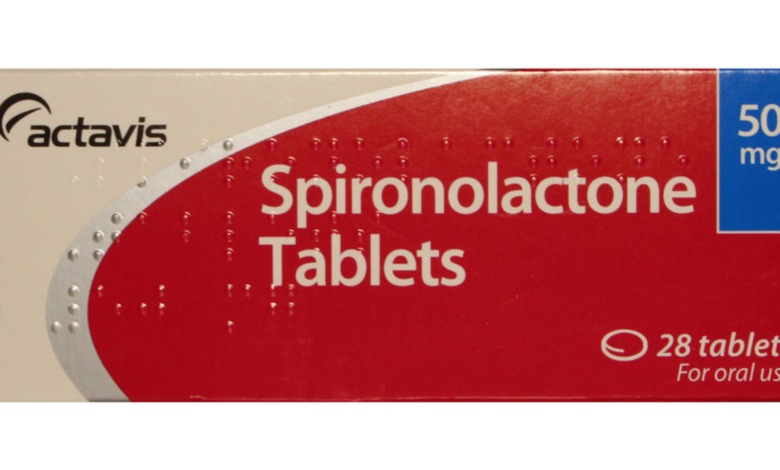Spironolactone: Blocks the effects of male hormones (androgens).

Brief information about it:
Spironolactone is a medication that blocks the effects of male hormones (androgens). It is used to treat various conditions related to excess androgen production, such as acne, hirsutism (excessive hair growth), and polycystic ovary syndrome (PCOS).
Uses:
· Acne: Spironolactone can help reduce acne in women who have acne caused by excess androgens.
· Hirsutism: It can help reduce excessive hair growth in women with hirsutism.
· Polycystic ovary syndrome (PCOS): Spironolactone can help regulate menstrual cycles, reduce acne, and improve fertility in women with PCOS.
· Heart failure: In men, spironolactone can be used to treat heart failure.
Mechanism of action:
Spironolactone works by blocking the receptors that bind to androgens, such as testosterone. This reduces the effects of these hormones in the body.
Elimination half life:
The elimination half-life of spironolactone varies depending on the individual and the dosage. However, it typically ranges from 16 to 20 hours.
Route of Administration:
Spironolactone is available in oral tablets. It is usually taken once or twice a day.
Side effects:
Spironolactone may cause some side effects, including:
- Dizziness
- Headache
- Fatigue
- Muscle cramps
- Breast tenderness
- Menstrual irregularities
- High potassium levels
- Kidney problems
Dose:
The appropriate dose of spironolactone will depend on your individual needs and medical history. Your healthcare provider will determine the best dose for you.
Precautions:
Before taking spironolactone, it’s important to discuss any potential risks with your healthcare provider. Some precautions include:
- Kidney problems: Spironolactone should be used with caution in people with kidney problems.
- Pregnancy and breastfeeding: Spironolactone should not be used during pregnancy or breastfeeding.
- Electrolyte imbalances: Spironolactone can cause electrolyte imbalances, so it may need to be monitored closely.





